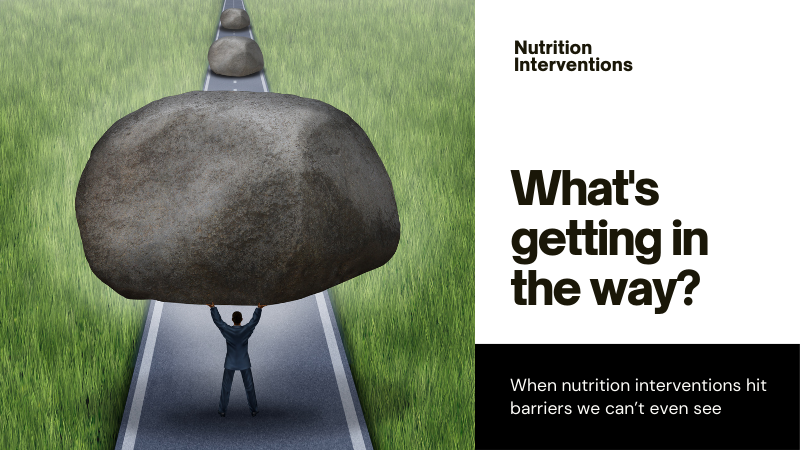As a general rule, I find that dietitians are smart, motivated and caring. Dietitians want the best for their patients. Dietitians have an incredible wealth of knowledge and can develop really specialized skill sets in their clinical areas.
And yet, I have met a patient or two, who has received great advice and failed to change. Why? What’s getting in the way? Is it that the dietitian needs to develop a new handout? Maybe a sample meal plan? Or could it be something else altogether?
I am thinking – its something else altogether
I have a big interest in how nutrition interventions impact patient’s quality of life. And according to this article, it has been proposed that if we aren’t accurately measuring and reporting on how dietary interventions impact our patients quality of life than our interventions are less likely to be successful.
What is Quality of Life?
According to Carson et al, quality of life refers to a multidimensional concept of an individuals subjective evaluation of positive and negative aspects of life.

I really liked Figure 1 from this article. I thought it did a nice job of describing how what we eat impacts our social interactions, satisfaction, our financial situation (or vice versa), our physical and psychological health.
Why does understanding the impact of nutrition on quality of life matter?
I think the authors of the paper said it very well:
If an individual’s quality of life is diminished in some way as a result of dietary changes, that individual may be less likely to continue to implement the change, which will ultimately limit success.
Carson et al, 2014
How do we measure the impact of our interventions on quality of life?
The majority of studies use a general health quality of life tool, known as the SF-36 (the Short-Form 36). The SF-33 is a great, validated tool. In fact, even I used it in my PhD and in one of my studies. However, I never felt like it got at the heart of what I hear from patients every day.
Patient tells me that they are tired of their diet. That they feel like there is nothing left to eat. Or, that their diet makes it harder to share meals with friends and family. And when I hear these things, I wonder if the cost of the dietary intervention is starting to outweigh the benefit.
Are nutrition interventions associated with better or worse quality of life?
This review article only looked at diet interventions for weight loss. Therefore, the results of this study only apply to these interventions specifically. However, of the 24 studies reviewed, the authors reported that 21 reported improvements in quality of life with dietary intervention. But, it was unclear if improvements were related to weight loss or the dietary intervention itself.
I was impressed that many of these studies included in this review lasted for 52 weeks. Not too bad as far as diet studies go. Though, for those of us who work in chronic disease – we ask for a LOT more than 52 weeks. We ask for dietary changes for life.
Take Aways
Sometimes when nutrition interventions aren’t sticking, it is possible that our nutrition interventions are having a bigger impact on our patient’s quality of life than we may realize. And it is possible that these impacts could be creating barriers for our patients to follow our advice.
At this point, I haven’t come across a tool to assess this. And without a tool, it is difficult for us to measure and respond. Though ultimately, asking our patients more about the impacts of their diet on all the components of their life, may provide some clues and help us tailor our advice. Because I know one of my goals is to make dietary advice easier for our patients.



